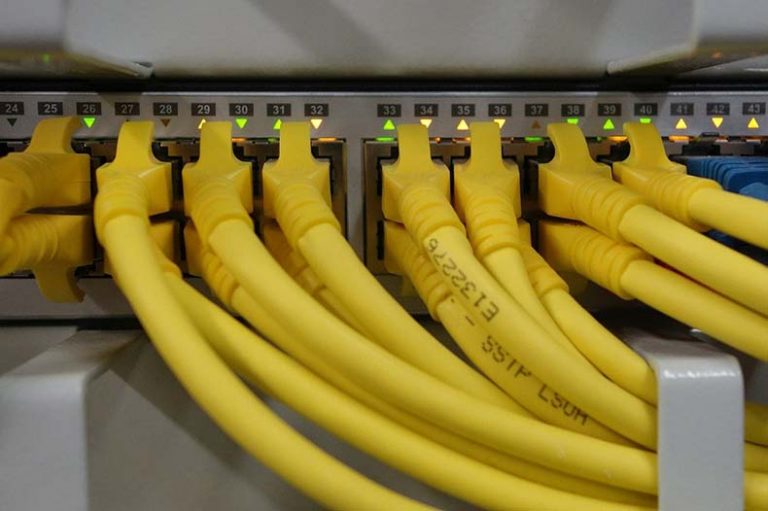Why Linux Is a Superior Operating System for Servers
Today, you can find different computer systems on the market. Microsoft Windows is the most popular, with about 70% of the market. Then, there’s Apple’s macOS and Linux, respectively, in second and third place. However, it’s a well-known fact that one’s success has nothing to do with how well it works. Therefore, the Linux system ranks top of the list regarding servers and supercomputers.

Linux has taken the industry by storm despite the endorsement of Windows. It’s a popular OS used for a wide variety of programs. As a result, Linux is everywhere, from major social media sites to popular programming languages. It’s also been expanded to support the Internet of Things, embedded devices, and robotics. That’s led to new ideas in many industries and is also helping the market grow.
The proliferation of open-source software and consumer products will likely increase their global profile. All this has created a massive market growth opportunity over the coming years. Therefore, using Linux is highly recommended if you’re a newbie or already working in the IT industry, as its features are superior to other operating systems. Keep reading to learn numerous Linux benefits for servers.
An Overview of Linux Servers
A server running the free and open-source Linux OS is known as a Linux server. It’s widely used because of its affordable price, helpful online community, and free source code. Linux, as well as its rivals, are popular operating systems not only for PCS but also for mobile devices.
Linux allows for greater customization and flexibility, making it a popular choice among developers. On the other hand, Windows and Android are well-known for integration with Google services. That allows for a great leeway regarding push character limits, which is necessary for successful notification campaigns.
The system is designed to run databases and web services, two of the most complex types of commercial software. In addition, you can find many well-known companies and other services that use the system:
- AWS, Azure, Google, Rackspace, and others employ Linux to supply cloud services.
- Most resource-constrained devices run Linux, including IoT hardware and Raspberry Pi boards.
- AT&T, Verizon, Nippon Telephone & Telegraph, China Mobile, Vodafone, Telefonica, and others use Linux-based networks.
- Most global stock exchanges run on Linux.
- Across the globe, Linux presents a platform for national electronic voting systems.
These are just a few examples of the many companies and services that use Linux to facilitate their operations. Considering this open-source OS’s benefits, industry tycoons appreciate its flexibility, scalability, and cost-effectiveness, making it a popular choice.
The Benefits of Linux Servers Over Other Operating Systems

Today, as 2023 Linux statistics show, the operating system goes toe to toe with Windows and other rivals. However, when it comes to servers, it’s an unbeatable alternative in the business sector. There’s more than one reason why many experts today believe Linux to be the best OS currently available.
Customization
With Linux, you have more leeway in tailoring the system to your requirements. That’s crucial for the system’s target audience of experienced professionals, who may adjust the software to their specific needs and save time in their daily workflow. As a result, the interface of this system is very customizable, as are its behavior and response to inquiries. Finally, most versions have open code, allowing you to conduct experiments too.
Security
Linux can withstand malicious software and viruses because of its open-source nature, which facilitates the rapid detection and correction of security flaws. So, you won’t need to spend time finding a good antivirus program or keeping up with the most recent upgrades. Linux’s modular nature also makes it simpler to deactivate or eliminate unused parts of the operating system that pose security problems.
Stability
Linux’s reputation for stability makes it a good choice for mission-critical systems. Linux-based machines are hence more reliable and less prone to power outages. In addition, a strong developer community is constantly devoted to working hard and fixing bugs. This feature reduces the possibility of downtime due to software issues.
Free usage
Linux, in contrast to Windows and other operating systems, won’t cost you anything. This is because the system has been created and maintained by an active community of enthusiasts and volunteers. Therefore, the contributors think a software solution of this fundamental kind should be available to the public at no cost.
Conclusion
IT professionals universally agree that Linux is better. Linux is an OS that gives its users, including novices, experts, and experienced developers alike, the independence they need. Linux’s large and enthusiastic user base will attest to its excellence. Another intriguing statistic is that Linux is the platform of choice for most servers.
Linux’s open-source nature, great customization leeway, high security, and stability make it superior. In addition, Linux’s greater adaptability and personalization make it simpler for system administrators to tailor the operating system to their requirements. Finally, its reputation for dependability and security makes it a good fit for businesses that must maintain their servers around the clock.






